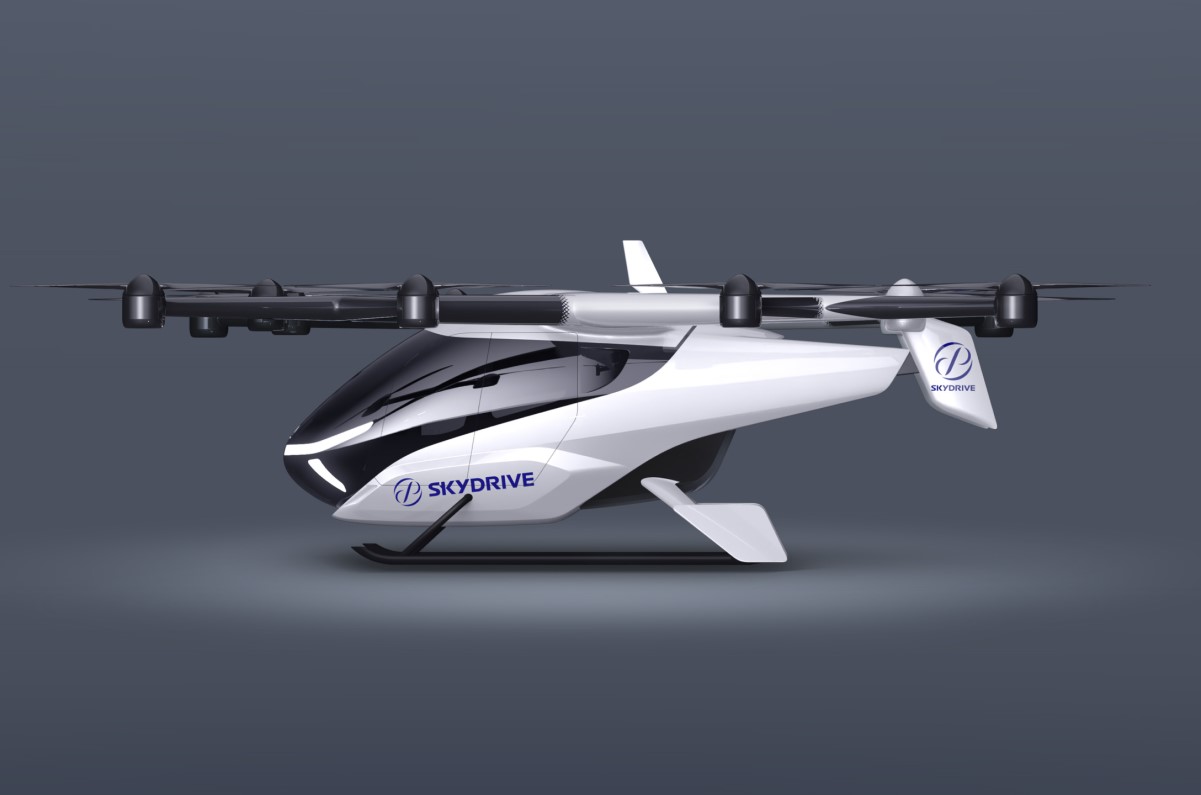
Electric vertical take-off and landing (eVTOL) flying cars also have fully autonomous capabilities.
Suzuki Motor Corporation, in collaboration with SkyDrive Inc, have begun manufacturing flying cars in a Suzuki-owned manufacturing plant in Iwata City, Shizuoka Prefecture, Japan. This facility is capable of producing 100 electric vertical take-off and landing (eVTOL) flying cars a year. They’re fully electric and autonomous, and are also known as Advanced Air Mobility (AAM) or Urban Air Mobility (UAM).
- Skydrive manufactured cargo drones are operational in Japan
- World’s first commercial flying car went on sale in 2017
- eVTOL flying cars to be tested in Gujarat by 2027
It was in June 2023 that Suzuki and SkyDrive signed a manufacturing cooperation contract for the manufacture of Skydrive (SD-05 type) through SkyDrive’s subsidiary Sky Works Inc.
What is an eVTOL?
An eVTOL flying car is an electrically powered drone with autonomous aids like Autopilot. The SkyDrive e-VTOL is a compact, three-seater drone that typically functions like a helicopter, and is capable of landing and taking off vertically. However, the focus on development of these commercial flying drones is majorly for “Air Taxi” services in the future.
In recent years, the demand for personal transportation has been at its peak, which has further led to heavy traffic in urban areas. However, air taxis could be the future of public transportation in order to provide ease for intercity commuting by simply leaping over the traffic.
While this might feel like a constrained automotive space, there are also other popular car makers involved in the development of flying cars or air taxis. The first would be the PAL-V Liberty, the first commercial flying car unit that went on sale for £4,25,000 (approximately Rs 3.52 crore) in 2017. The next in line is Korean carmaker Hyundai, who also have an air taxi concept that’s bound to make its inaugural passenger flight in 2028.
Like SkyDrive, the Hyundai too will be based on the e-VTOL concept, but this mini aircraft could seat up to five passengers. Another flying car prototype is the Aircar, designed by Nitra-based Klein Vision in 2022, which can seat two passengers and is capable of reaching air speeds of around 190kph and altitudes of over 8,000ft. This flying car is powered by a 300hp, 1.6-litre BMW engine and gets a 1,000km range.
Flying cars in India
Skydrive, a Japanese company headquartered in Toyota City, has been developing flying cars and cargo drones since 2018. While Skydrive claims that the cargo drones are already functional in some mountainous areas in Japan, they also initially developed a compact, two-seater electric flying car.
SkyDrive further planned on commercialising the tested prototype, which led to a collaboration with Suzuki in 2022. Going further, Suzuki Motors is cooperating in the development of technologies, including weight reduction gained through the basic policy of ‘Sho, Sho, Kei, Tan, Bi (Smaller, Fewer, Lighter, Shorter, Neater)’, electrification, mass-production technologies and business development in markets including India.
Apart from showcasing the eVTOL at the Vibrant Gujarat Global Summit 2024, Skydrive Inc had also announced an agreement with the Department of Science and Technology (DST) to test an eVTOL in Gujarat by 2027. Apart from testing, SkyDrive also plans on creating business opportunities as defined in the cooperation agreement with the DST. Additionally, the Japanese aircraft manufacturer has also signed an MoU with Cyient, an Indian company based in Hyderabad for further technological support with the SkyDrive eVTOL’s Indian future.
Also see:
PAL-V Liberty flying car gets road usage approval in Europe
Suzuki Motorcycle India’s 1 millionth unit is an Access 125
Why Suzuki is ditching Toyota’s hybrid tech in favour of its own for its small cars
